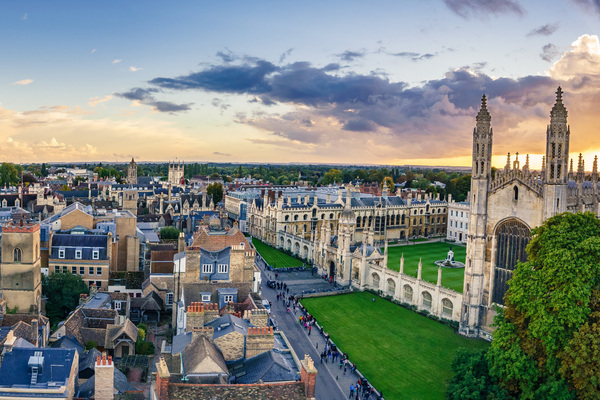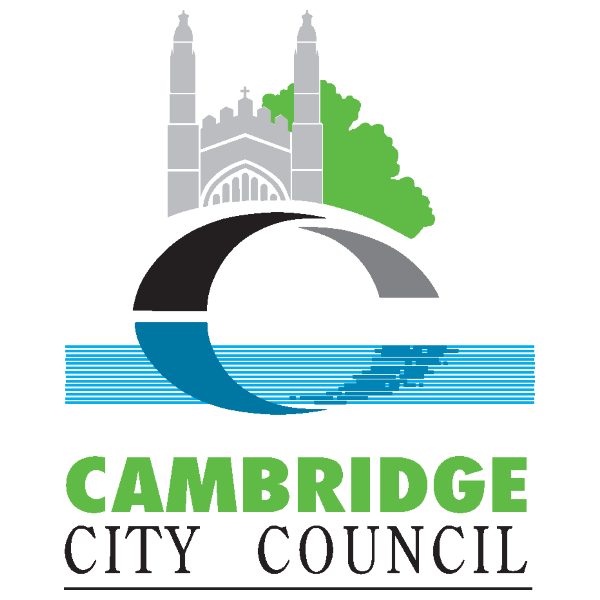Congress 2023 - Cambridge: Designing for the Future
In a time of global flux, urbanism’s strength is that it takes the long view. What urbanists do today will impact people and places for centuries. Designing for the Future is at the heart of urbanism’s potential to shape places that meet people’s needs. When 75% of the world’s population will live in urban areas in 2050, urbanism’s offer to our planet’s future is to design well for it.
Cambridge is a world leader in Designing for the Future. Its heritage as a university city powers its growth today as one of the fastest-growing cities in the UK. Its recent urbanism story offers solutions to global challenges. The city is proud of its recent investment in quality urban design and its emerging, shared civic vision for sustainable and inclusive growth.
Rapid growth impacts how cities deliver improvements to people’s quality of life. It results in big questions on housing, income inequality, physical and digital connectivity, resource management, and adapting historic buildings to meet climate change targets. Crucially, cities must explore how to involve young people, even if they’re only temporary residents.
Congress in Cambridge is an opportunity for it to share how it is Designing for the Future and for broader international perspectives on what Designing for the Future means and looks like elsewhere.
- How do cities address people’s social needs, shape their physical environment, and manage their growth pressures, to create communities where people thrive?
- How can partnership approaches build social and human capital? Is systems thinking the answer?
- How can innovation and specialist cluster quarters be integrated into city life and increase social mobility?
- How do cities use the momentum of positive infrastructure changes to ensure better life outcomes across city neighbourhoods?
- How do cities manage scarce resources and adapt existing buildings while working towards net zero targets?
Designing for the Future - Themes
Partnership and Participation
Designing for the Future meant Cambridge created new partnerships to enable the city's expansion. Making the most of the city's academic, business, and government sectors was vital. It also meant tapping into the city's strong people networks to bring together communities of place and interests. Decision-making is increasingly complex as Cambridge navigates the pressures of a changing city. But, the city is committed to civic involvement as central to its growth.
Congress in Cambridge is an opportunity to see how places use systems thinking to embrace whole-place change. What cities have translated successful development partnerships into ones focused on delivering social inclusion?
Innovation
The story of Cambridge is the story of innovation. From the UK’s first Science Park in the early 1970s to the Cambridge Biomedical Campus, Cambridge is home to a highly networked community of investors and professionals who embrace a culture of innovation. The Innovate Cambridge Charter has prompted new thinking on how small cities with globally significant clusters still need to be people-focused places to compete in a post-Brexit environment.
Congress in Cambridge will explore how these cities manage themselves. What cities have integrated research quarters into the city’s life, and has this helped to increase social mobility? How, post-Covid, can our urban places help the chance encounters that spark new ideas?
Inclusivity, Connectivity, and Mobility
Cambridge’s recent transport, infrastructure, and housing moves demonstrate its intent to Design for the Future. New urban extensions at strategic points have been central to this, as has encouraging a modal shift in how people move around. Digital connectivity is good, but with opportunities for more work on digital inclusion and placemaking.
What comes next to shape a more inclusive city needs a step change in thinking and behaviour. The city knows the benefits of growth have not been universal. Access to economic opportunity is unequal, and life expectancy disparities between rich and poor neighbourhoods are too big. Housing supply and costs are of particular concern to an inclusive future.
Congress in Cambridge is a chance to examine how Designing for the Future plays a role in radical new thinking about infrastructure and urban mobility. Where uses transport and housing development to improve quality of life - and how? Where is a genuinely inclusive city - and how have they made it happen?
Climate and Adaptation
Addressing Climate Change, meeting net-zero targets, and improving biodiversity are imperative in Designing for the Future. Adapting past practice is now vital to avoid future failure.
Cambridge has falling carbon emissions but, like everywhere, knows more is needed. Retrofitting and adapting its historic buildings for the 21st Century can help, but there is a hefty price tag. Managing water resources is not sustainable under existing development patterns. The economy was resilient during Covid-19, thanks to vibrant tech and biotech sectors, but the visitor economy is still in recovery mode. And, Designing for the Future means grappling with well-known trends wrought by the shift to online: a reduction in retail space, the growth of hybrid working, and a more significant role for cultural experiences.
Congress in Cambridge is the chance to make Designing for the Future the driver for urbanism's future. How do cities manage rapid growth and still carve a path to net zero? And, in a story as old as Cambridge, how do city cores change in ways that mean people still want to spend their every day in them?
In partnership with Cambridge City Council






